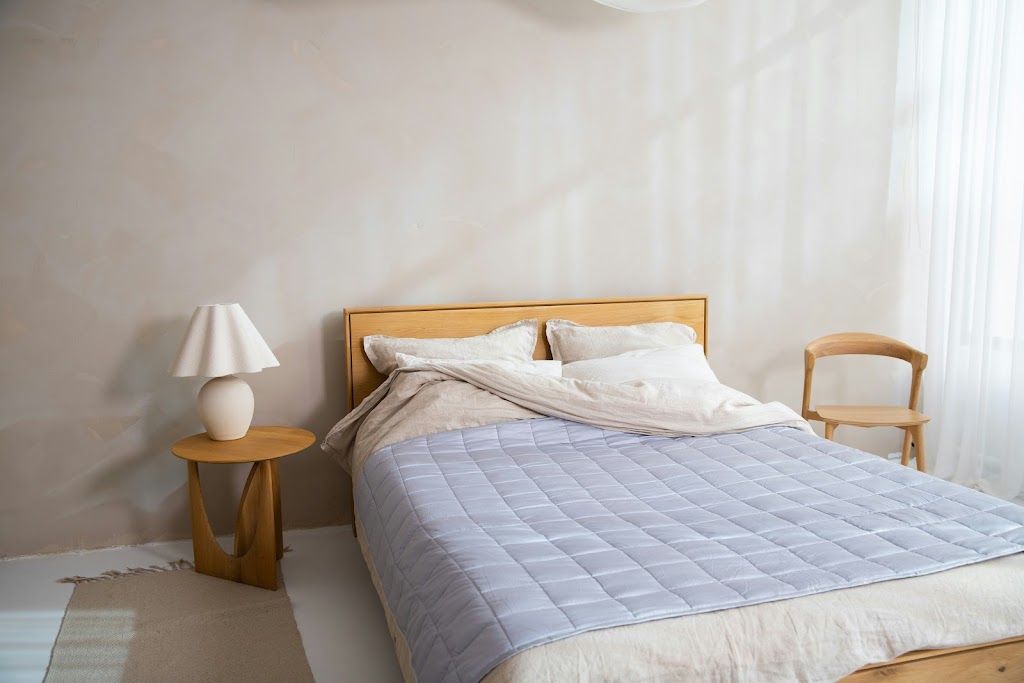 Photo by Kimberly Farmer on Unsplash
Photo by Kimberly Farmer on Unsplash
Cotton vs. Microfiber Duvet Covers: Which One Should You Choose?
When it comes to choosing the perfect duvet cover, the fabric plays a crucial role in determining comfort, durability, and overall sleep quality. Two of the most common materials used for duvet covers are cotton and microfiber. While both have their own benefits, they also come with some drawbacks that might make one a better choice for your specific needs.
In this blog post, we’ll explore cotton and microfiber duvet covers in detail, looking at their characteristics, advantages, disadvantages, and how they compare in terms of comfort, durability, maintenance, and affordability.
What is a Cotton Duvet Cover?
Cotton is a natural fiber derived from the cotton plant and has been used for centuries to create soft, breathable, and durable fabrics. Cotton duvet covers are widely favored due to their natural feel, breathability, and moisture-wicking properties.
Pros of Cotton Duvet Covers
-
Breathability & Comfort
- Cotton is an incredibly breathable fabric, making it a great choice for those who tend to sleep hot.
- It allows air circulation, reducing the chances of overheating during the night.
-
Softness & Natural Feel
- High-quality cotton, especially Egyptian cotton or Pima cotton, is known for its superior softness.
- It offers a luxurious feel that improves with every wash.
-
Hypoallergenic & Skin-Friendly
- Cotton is a great choice for people with sensitive skin or allergies because it is free from synthetic chemicals.
- It doesn’t trap dust and allergens like synthetic materials might.
-
Durability
- Cotton duvet covers are known for their long lifespan, especially those with a high thread count (300+).
- They can withstand frequent washing without losing their softness or structure.
-
Moisture-Wicking & Absorbent
- Cotton absorbs moisture effectively, making it ideal for warm climates or people who sweat at night.
Cons of Cotton Duvet Covers
-
Wrinkling
- Cotton is prone to wrinkling, which means you may need to iron or steam your duvet cover to maintain a crisp look.
-
Shrinkage
- Some cotton duvet covers may shrink after washing, especially if they are not pre-shrunk or washed in hot water.
-
Price
- High-quality cotton duvet covers, particularly those made from Egyptian or organic cotton, can be more expensive than synthetic options.
-
Stain Absorption
- Since cotton is absorbent, it can stain more easily compared to microfiber.
What is a Microfiber Duvet Cover?
Microfiber is a synthetic fabric made from ultra-fine polyester fibers. It is a popular alternative to natural fabrics due to its affordability, softness, and ease of maintenance.
Pros of Microfiber Duvet Covers
-
Soft & Smooth Texture
- High-quality microfiber can feel extremely soft and silky to the touch.
- Some microfiber duvet covers even mimic the luxurious feel of high-thread-count cotton.
-
Wrinkle-Resistant
- Unlike cotton, microfiber duvet covers do not wrinkle easily, making them a great choice for those who prefer a smooth, low-maintenance look.
-
Affordable
- Microfiber duvet covers are generally more budget-friendly than cotton, making them an attractive choice for those looking for an affordable yet comfortable bedding option.
-
Durable & Long-Lasting
- The synthetic fibers in microfiber are resistant to wear and tear, ensuring a longer lifespan compared to lower-quality cotton.
- They hold their color well, preventing fading over time.
-
Stain & Water-Resistant
- Microfiber is less absorbent than cotton, making it resistant to stains and spills—an excellent choice for households with children or pets.
-
Lightweight & Quick-Drying
- Microfiber is lightweight and dries much faster than cotton, making it an easy-care option.
Cons of Microfiber Duvet Covers
-
Less Breathable
- Microfiber does not allow air to circulate as well as cotton, making it less breathable.
- This can lead to heat retention, which might not be ideal for hot sleepers or warm climates.
-
Can Trap Dust & Allergens
- While some microfiber duvet covers are hypoallergenic, others can attract dust and static, which may not be ideal for allergy sufferers.
-
Not as Environmentally Friendly
- Being synthetic, microfiber is derived from petroleum-based products, making it less eco-friendly than cotton.
- Microfiber fabrics can also shed microplastics into the environment during washing.
-
Can Feel Artificial
- Some people prefer the natural feel of cotton and find microfiber to be less luxurious despite its softness.
Cotton vs. Microfiber Duvet Covers: A Detailed Comparison
| Feature | Cotton Duvet Cover | Microfiber Duvet Cover |
|---|---|---|
| Breathability | Highly breathable, ideal for hot sleepers. | Less breathable, may trap heat. |
| Softness | Soft and natural, gets softer with washes. | Very soft but may feel synthetic. |
| Wrinkle Resistance | Wrinkles easily, may need ironing. | Wrinkle-resistant, low maintenance. |
| Durability | Long-lasting, but can shrink or wear over time. | Strong and durable, resistant to wear and fading. |
| Moisture-Wicking | Absorbs moisture, great for sweaty sleepers. | Less absorbent, but more stain-resistant. |
| Maintenance | Requires more care, can shrink if washed improperly. | Easy to wash and dries quickly. |
| Hypoallergenic | Natural and great for sensitive skin. | May trap dust and allergens. |
| Environmental Impact | Biodegradable and eco-friendly. | Synthetic, may shed microplastics. |
| Price | Can be expensive, especially for high-quality cotton. | More affordable and budget-friendly. |
| Best For | Those who prefer natural fabrics, breathability, and long-term durability. | Those looking for easy maintenance, affordability, and stain resistance. |
Which One Should You Choose?
The decision between cotton and microfiber duvet covers depends on your personal preferences, budget, and needs.
-
Choose Cotton If:
- You prioritize breathability and natural materials.
- You are willing to invest in long-lasting, high-quality bedding.
- You prefer a luxurious and soft feel that improves with washing.
- You have sensitive skin or allergies.
-
Choose Microfiber If:
- You want a budget-friendly, easy-care option.
- You prefer a wrinkle-free duvet cover that looks smooth without ironing.
- You live in a cold climate or prefer bedding that retains warmth.
- You need stain resistance, especially if you have kids or pets.
Final Thoughts
Both cotton and microfiber duvet covers have their own unique benefits. Cotton offers luxury, breathability, and sustainability, while microfiber is affordable, low-maintenance, and durable. If comfort and breathability are your top priorities, cotton is the winner. However, if you’re looking for an easy-to-care-for, budget-friendly option, microfiber is an excellent choice.
Ultimately, the best duvet cover is the one that suits your lifestyle and sleep preferences. Would you choose the natural comfort of cotton or the practicality of microfiber? Let us know in the comments below!
